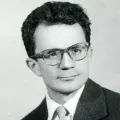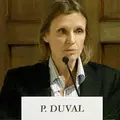Anti-cults and Defectors
In the wake of the ongoing anti-cult campaigns featuring so-called “defectors” – or apostates – we repost the article “The Defector's Syndrome” signed by FOB counsel Fabrizio d'Agostini. The occasion comes to us from Zona Bianca, the TV program that is treating the issue of religious minorities with a questionable approach. In fact, the narration of the life of and in the targeted religious communities (Mormons, Jehovah's Witnesses, etc.























